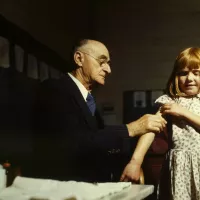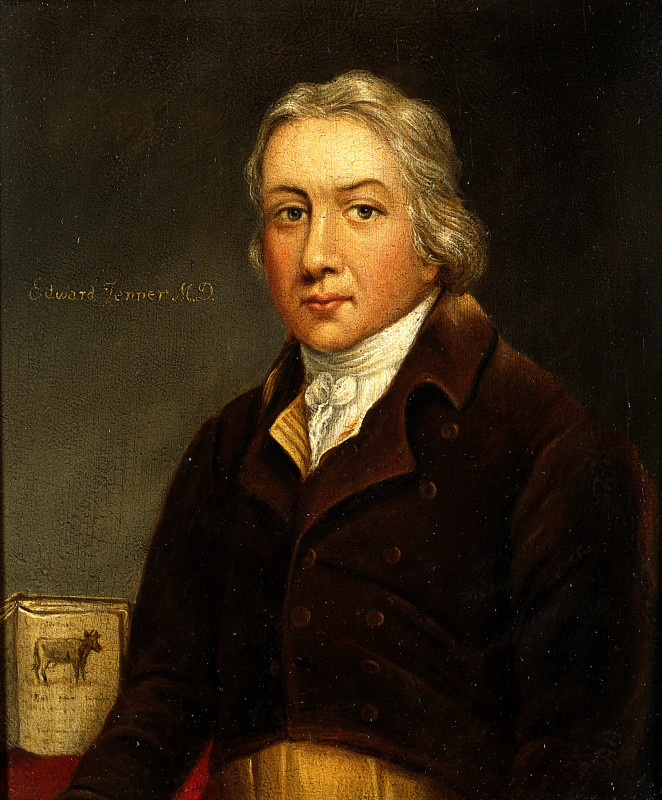Eswatini, a landlocked country in Southern Africa bordered by South Africa and Mozambique, is one of Africa's smallest nations. Despite its size (200km north-south, 130km east-west), it features diverse climates and terrains, ranging from mountainous highlands to dry lowlands. Mbabane is the executive capital and largest city, while Lobamba serves as the legislative capital.
1902: Involvement in Second Boer War
In 1902, Swaziland was indirectly involved in the Second Boer War, with skirmishes occurring between the British and the Boers within the country until 1902.
1903: Becomes British High Commission Territory
In 1903, after the British victory in the Second Boer War, Swaziland became one of the British High Commission Territories.
1904: Establishment of a commission to examine concessions
In 1904, the Swaziland Administration Proclamation established a commission to examine concessions and define their boundaries.
1906: Transvaal Colony granted self-government
In 1906, much of the territory's early administration, including postal services, was carried out from South Africa until the Transvaal Colony was granted self-government.
1907: Completion of concession examination
By 1907, the commission established in 1904 completed its work on examining concessions and defining boundaries.
1910: Land set aside for the Swazi
In 1910, the concessions partition commissioner set aside 1,639,687 acres, about 38% of Swaziland's area, for the Swazi people.
December 1921: Sobhuza II's coronation
In December 1921, Sobhuza II's official coronation as king took place after the regency of Labotsibeni.
1922: Unsuccessful deputation to London
In 1922, King Sobhuza II led an unsuccessful deputation to the Judicial Committee of the Privy Council of the United Kingdom in London regarding the issue of land.
1923: Establishment of Swazi Commercial Amadoda
In 1923, Sobhuza II established the Swazi Commercial Amadoda to grant licenses to small businesses on the Swazi reserves and the Swazi National School to counter the dominance of missions in education.
November 1963: Promulgation of the constitution
In November 1963, Britain promulgated the constitution for independent Swaziland, establishing a Legislative Council and an Executive Council.
1963: Resisting incorporation into South Africa
By 1963, the Swazi royal leadership had successfully resisted the weakening power of the British administration and the possibility of the incorporation of Swaziland into the Union of South Africa.
September 1964: First Legislative Council constituted
On 9 September 1964, the first Legislative Council was constituted in Swaziland.
1967: Elections under new constitution
In 1967, elections were held under a new constitution providing for a House of Assembly and Senate in Swaziland.
September 1968: Regaining full independence
On 6 September 1968, Swaziland regained its full independence from Britain, having been a British high commission territory since 1903.
1968: Protected state until independence
Following the 1967 elections, Swaziland was a protected state until independence was regained in 1968.
1972: Eswatini participates in the Summer Olympics
Eswatini has sent athletes to the Summer Olympics since 1972 but is yet to win a medal.
1972: Suspension of the constitution
Following the elections of 1972, the constitution of Swaziland was suspended by King Sobhuza II.
1972: Rise in tourism
In 1972 tourist numbers rose from 89,015, because of different policies from South Africa.
1972: Mananga Management Centre established
The Mananga Management Centre was established at Ezulwini as Mananga Agricultural Management Centre in 1972 as an international management development centre offering training of middle and senior managers.
April 1973: King Sobhuza II annuls constitution
On April 12, 1973, King Sobhuza II annulled the Westminster-style constitution by decree, assuming supreme powers in all executive, judicial, and legislative matters.
1981: Waterford Kamhlaba joins United World Colleges movement
In 1981, Waterford Kamhlaba joined the United World Colleges movement as the first United World College on the African continent.
1982: Death of King Sobhuza II
In 1982, King Sobhuza II died after reigning for almost 83 years, making him the longest-reigning monarch in history.
1982: King Sobhuza II's death
In 1982, King Sobhuza II died, leading to a period of regency before Mswati III's ascension to the throne.
1982: Attempt to transfer land from South Africa
In 1982, an attempt was made to transfer parts of KwaZulu and KaNgwane from South Africa to Swaziland, but the deal failed due to popular opposition.
1982: Establishment of University of Eswatini
In 1982, the University of Eswatini was established by act of Parliament as the national university.
1984: Queen Regent Dzeliwe Shongwe removed
In 1984, Queen Regent Dzeliwe Shongwe was removed by the Liqoqo and replaced by Queen Mother Ntfombi Tfwala.
1986: King Mswati III ascended to the throne
In 1986, King Mswati III ascended to the throne after the death of his father, King Sobhuza II.
1986: Mswati III crowned as king
In 1986, Mswati III, the son of Ntfombi, was crowned as king and ngwenyama of Swaziland.
1986: King Mswati III rule begins
Since 1986, King Mswati III has ruled Eswatini, maintaining an absolute monarchy.
1989: Rise in tourism
In 1989 tourist numbers rose to 257,997, because of different policies from South Africa.
July 1996: Constitutional review commission appointed
In July 1996, King Mswati III appointed a constitutional review commission, including chiefs, political activists, and unionists, to consider public submissions and draft proposals for a new constitution.
1996: Net primary school enrollment rate
In 1996, the net primary school enrollment rate in Eswatini was 90.8%, with gender parity at the primary level.
1998: Children reaching grade five
In 1998, 80.5% of children in Eswatini reached grade five.
May 1999: Drafts released for comment
In May 1999, drafts of a new constitution were released for public comment. These drafts were strongly criticised by civil society organisations in Swaziland and human rights organizations elsewhere.
November 2000: Drafts released for comment
In November 2000, further drafts of a new constitution were released for public comment. Similar to the previous release, these drafts were strongly criticised by civil society organisations in Swaziland and human rights organizations elsewhere.
December 2001: Team announced to draft new constitution
In December 2001, a 15-member team was announced to draft a new constitution. Several members of this team were reported to be close to the royal family.
2001: Real GDP growth since 2001
Since 2001, Real GDP growth has averaged 2.8%, which is nearly 2 percentage points lower than growth in other Southern African Customs Union member countries.
2003: Establishment of the Eswatini Tourism Board
In 2003, the Eswatini Tourism Board was established to promote royal celebrations and game parks.
2005: Adoption of constitution
In 2005, Eswatini's constitution was adopted.
2005: Establishment of court system
In 2005, the constitution established a court system based on the Western model consisting of Magistrates Courts, a High Court, and a Court of Appeal (the Supreme Court), which are independent of crown control. Traditional courts also deal with minor offences.
2005: End of "umchwasho" rite
In 2005, the country was under the rite of "umchwasho".
2005: Introduction of current Swazi constitution
In 2005, the current Swazi constitution was introduced, despite objections by political activists.
2006: Eswatini joins Lubombo Route agreement
In 2006, Eswatini joined the Lubombo Route agreement with South Africa and Mozambique, allowing cross-border travel on a single visa.
2008: First election under the constitution
In 2008, the first election under the new constitution took place, with members of Parliament elected from 55 constituencies.
2010: Establishment of Southern African Nazarene University
In 2010, the Southern African Nazarene University in Manzini was established as a merger of the Nazarene College of Nursing, College of Theology and the Nazarene Teachers College.
2011: Economic crisis and loan request
In 2011, Swaziland suffered an economic crisis and requested a loan from South Africa, but the conditions, including political reforms, were not agreed upon.
July 2012: Ellinah Wamukoya elected Anglican Bishop
On July 18, 2012, Ellinah Wamukoya was elected Anglican Bishop of Swaziland, becoming the first woman to be a bishop in Africa and served in that position until her death in 2021.
2012: Eswatini Medical Christian University established
In 2012, Eswatini Medical Christian University, which focuses on medical education, was established in Mbabane as Eswatini's newest university. The campus of Limkokwing University was also opened at Sidvwashini in Mbabane in the same year.
2012: Easing of fiscal pressure
Starting in 2012, improvements in Southern African Customs Union (SACU) receipts eased the fiscal pressure on the Swazi government.
2013: New parliament elected; Sibusiso Dlamini reappointed
In 2013, a new parliament was elected, and King Mswati III reappointed Sibusiso Dlamini as prime minister for the third time.
2013: End of five-year terms for MPs
In 2013, the five-year terms for the Members of Parliament elected in 2008 came to an end.
2013: Number of Jewish families in Eswatini
In 2013, there were 14 Jewish families living in Eswatini.
2014: "Strengthening the National Protected Areas System" (SNPAS) project begins
From 2014, Eswatini participated in the "Strengthening the National Protected Areas System" (SNPAS) project.
2015: Drought impacting sugar production
The 2015–16 drought decreased sugar and soft drink concentrate production export (Eswatini's largest economic export).
April 2018: Name changed to Kingdom of Eswatini
In April 2018, the official name of the country was changed from Kingdom of Swaziland to Kingdom of Eswatini, mirroring the name commonly used in Swazi.
September 2018: Anti-government protests by workers
In September 2018, workers in Eswatini began anti-government protests against low salaries, resulting in a three-day strike that caused widespread disruption.
2018: Health Issues and Population Statistics
As of 2018, Eswatini faced major health issues such as a high HIV/AIDS prevalence and had the 12th-lowest life expectancy in the world, at 58 years, also 35% of the country's population was aged 14 years or younger.
2018: Poorly developed public services
As of 2018, public services in Eswatini were very poorly developed. The country had only twelve public ambulances, elementary schools generally no longer provided canteens and pharmacies were disappearing.
2018: Forest Landscape Integrity Index
In 2018, Eswatini had a Forest Landscape Integrity Index mean score of 4.21/10, ranking it 142nd globally out of 172 countries.
2018: UNDP establishes OECMs
In 2018, the United Nations Development Programme (UNDP) established a new category for informal conservation areas called OECMs, or Other Effective Conservation Measures.
2019: Highest prevalence of HIV
As of 2019, Eswatini had the highest prevalence of HIV among people aged 15 to 49 in the world (27.1%).
June 2021: Pro-democracy protests erupt
In June 2021, pro-democracy protests broke out across Eswatini, sparking riots, looting, and street skirmishes with police and soldiers due to anger over the lack of reforms.
2021: SNPAS Project adopts OECM terminology
In 2021, the SNPAS Project adopted OECM terminology and began certifying informal conservation areas in Eswatini.
2022: Climate change concerns affecting development
The government of Eswatini has expressed concern that climate change is exacerbating existing social challenges such as poverty, a high HIV prevalence, and food insecurity and will drastically restrict the country's ability to develop, as per Vision 2022.
September 2023: Last elections held
The last elections in Eswatini were held on 29 September 2023.
2023: Democracy indices ranking
According to the 2023 V-Dem Democracy indices, Eswatini is ranked as the 9th lowest worldwide and the 2nd lowest electoral democracy in Africa.
2024: Global hunger index
In 2024, Eswatini scored 15.7 on the global hunger index, with a rank of 74th.
July 2025: United States deports men to Eswatini
In July 2025, the United States deported 5 men to Eswatini with the agreement of the Eswatini government. These deportees were detained in solitary confinement.
October 2025: Additional deportees sent to Eswatini
By October 2025, ten additional deportees had been sent from the United States to Eswatini, and the Eswatini Finance Minister confirmed that the government had received $5.1 million from the United States as part of an agreement to serve as a third-country deportation location.
Mentioned in this timeline
China officially the People's Republic of China is an East...
Africa is the second-largest and second-most populous continent comprising of...
Tanzania officially the United Republic of Tanzania is an East...
South Africa officially the Republic of South Africa RSA is...

War is defined as an armed conflict involving the armed...
Climate change encompasses global warming and its far-reaching effects on...
Trending

47 minutes ago Google Maps to fully function in South Korea after data agreement.

2 hours ago CDC Panel to Discuss COVID-19 Vaccine Injuries Following RFK Jr.'s Meeting

48 minutes ago CDC Panel to Discuss COVID Vaccine Injuries Following RFK Jr.'s Meeting

2 hours ago Casey Means' Surgeon General Nomination Faces Scrutiny Over Mainstream Medicine Criticism and Birth Control Views.
3 hours ago Punch, the lonely baby monkey, goes viral and wins hearts worldwide.

4 hours ago Jon Hamm Discovers Viral Dancing Meme; Reacts to Meme-Worthy Status at 54.
Popular

Jesse Jackson is an American civil rights activist politician and...

Barack Obama the th U S President - was the...

Susan Rice is an American diplomat and public official prominent...

XXXTentacion born Jahseh Dwayne Ricardo Onfroy was a controversial yet...

Michael Joseph Jackson the King of Pop was a highly...

Kashyap Pramod Patel is an American lawyer who became the...